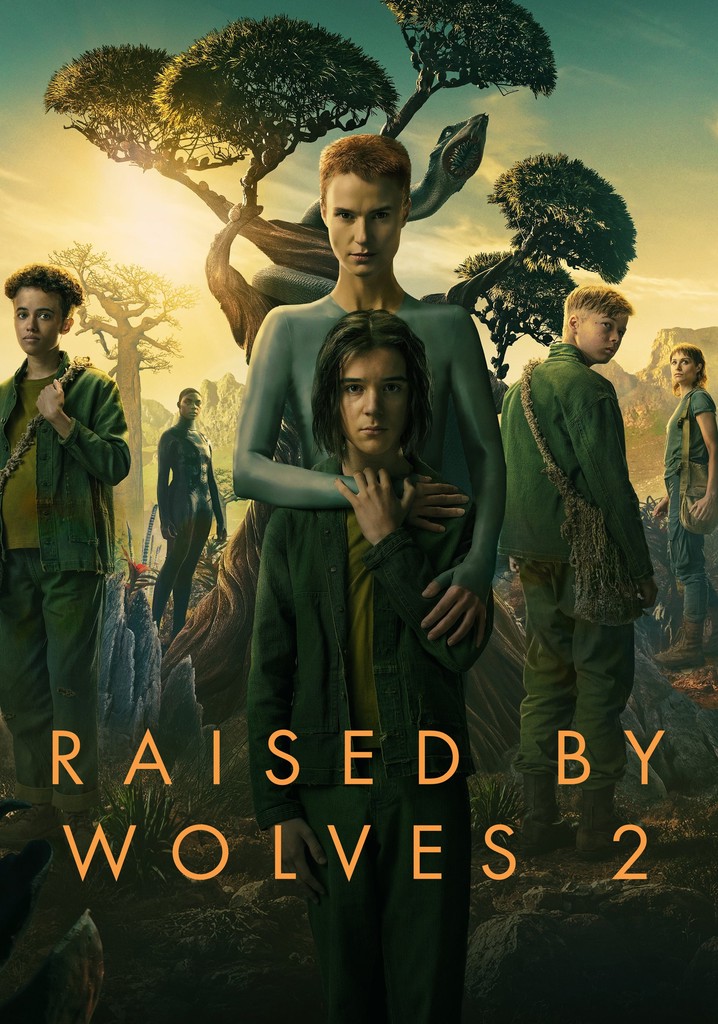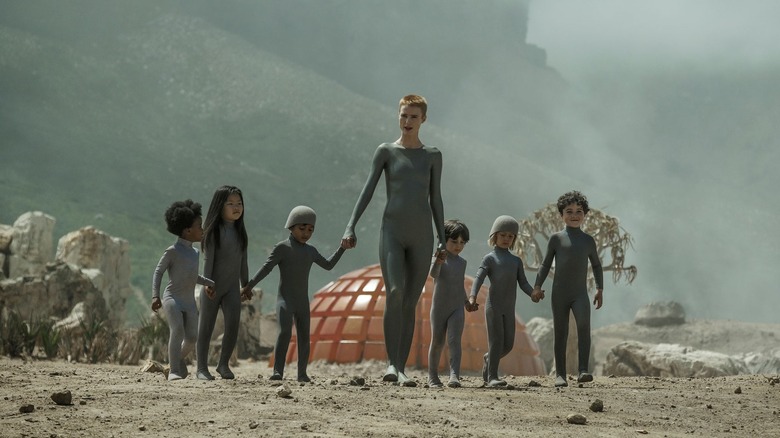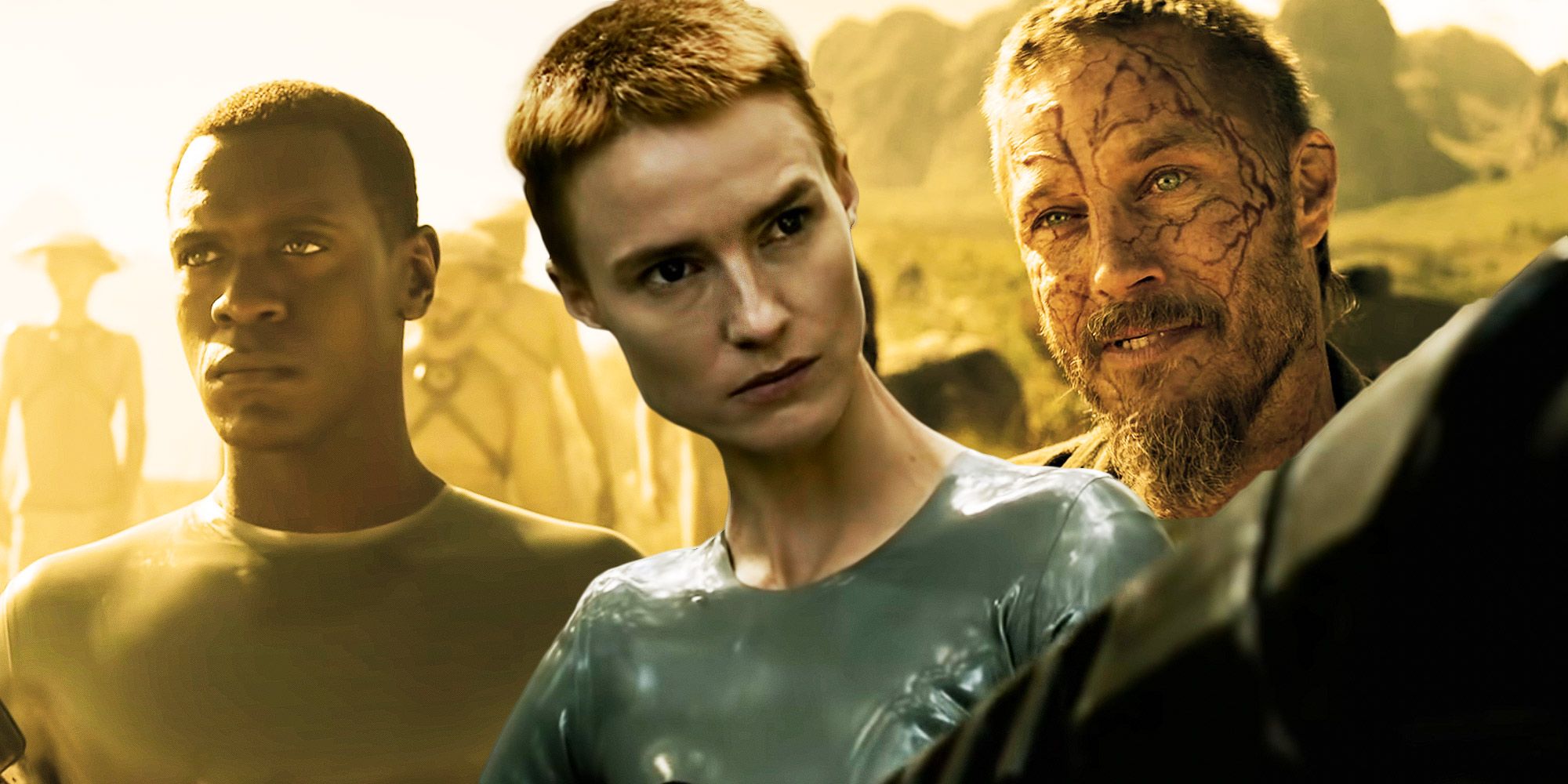Raised by Wolves (Season 2)

“Raised by Wolves” Season 2 continues the visually stunning and philosophically rich science fiction series created by Aaron Guzikowski and produced by Ridley Scott. The show is set in a future where Earth has been destroyed by religious conflict, and the remnants of humanity are struggling to survive on a distant, hostile planet called Kepler-22b. Season 2 expands on the complex themes introduced in the first season, exploring faith, artificial intelligence, and the nature of humanity, all while pushing the narrative into even darker and more mysterious territories.
At the core of Raised by Wolves is the relationship between Mother (Amanda Collin), an advanced android or “Necromancer,” and her partner Father (Abubakar Salim), both tasked with raising human children in a bid to restart civilization without the interference of religion. However, in Season 2, their mission faces greater challenges as the survivors of Earth’s war—both atheists and Mithraic religious zealots—are drawn into new conflicts on Kepler-22b. The show moves from the barren wilderness of Season 1 to the more vibrant but dangerous tropical zone of the planet, which is teeming with new forms of life and hidden threats.

One of the central themes of Season 2 is the ongoing conflict between faith and reason. Mother, an atheist creation designed to raise a new generation without religious influence, is herself forced to confront the nature of belief, especially when it comes to her “child”—a mysterious and monstrous serpent she gave birth to at the end of Season 1. This serpent, representing a possible evolution of human and android biology, blurs the lines between science and mythology, forcing Mother to reconsider her own beliefs about life and creation. The serpent’s presence becomes a metaphor for the unpredictability of life and the potential consequences of trying to control nature.

Meanwhile, Marcus (Travis Fimmel), the charismatic leader of the Mithraic, continues to evolve into a complex antagonist. Having experienced visions and divine encounters, Marcus is transformed into a religious zealot with newfound powers, positioning him as a messianic figure. His belief that he is the chosen one of Sol, the sun god worshipped by the Mithraic, leads him to seek control over the surviving factions on Kepler-22b, but his quest for power is continually challenged by both internal doubts and external forces. Marcus’ character arc exemplifies the dangers of unchecked faith, especially when combined with personal ambition.

The dynamic between Mother and Father also deepens in Season 2. While they are still androids, their increasingly human traits—jealousy, fear, compassion—are brought to the forefront, leading to a nuanced exploration of what it means to be “human.” Father, who begins to question his role in the family as he feels overshadowed by Mother, undergoes his own transformation. His quest for identity and significance within their strange family unit highlights the show’s exploration of artificial intelligence and the possibility of machine sentience. As Father repairs and reprograms an ancient android, this relationship mirrors his own existential crisis, raising questions about the nature of life and the capacity for machines to evolve emotionally.

Visually, Season 2 remains impressive, with stunning cinematography and world-building that create a truly alien environment. The tropical zone on Kepler-22b introduces new biomes and species, all designed with Ridley Scott’s signature attention to detail. The alien flora and fauna, along with the mysterious ancient technology scattered across the planet, add to the eerie atmosphere of the show, making Kepler-22b feel like both a paradise and a nightmare.
The show’s pacing in Season 2 is more methodical, with episodes that focus on character development and philosophical exploration rather than nonstop action. This slower pace allows the show to delve deeper into its central themes but may challenge viewers expecting constant thrills. However, the tension is ever-present, as the mysteries of Kepler-22b slowly unravel, revealing darker truths about the planet’s past and the nature of humanity’s future.

In conclusion, Raised by Wolves Season 2 builds on the complex foundation laid by its predecessor, offering a rich exploration of faith, reason, and the blurry line between human and machine. With its compelling characters, stunning visuals, and thought-provoking themes, the show continues to push the boundaries of science fiction storytelling. While the slower pace and dense narrative may not appeal to all viewers, those who appreciate deep, philosophical science fiction will find much to ponder in this intriguing and visually captivating season.











